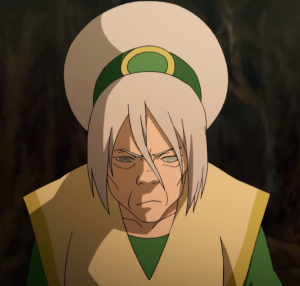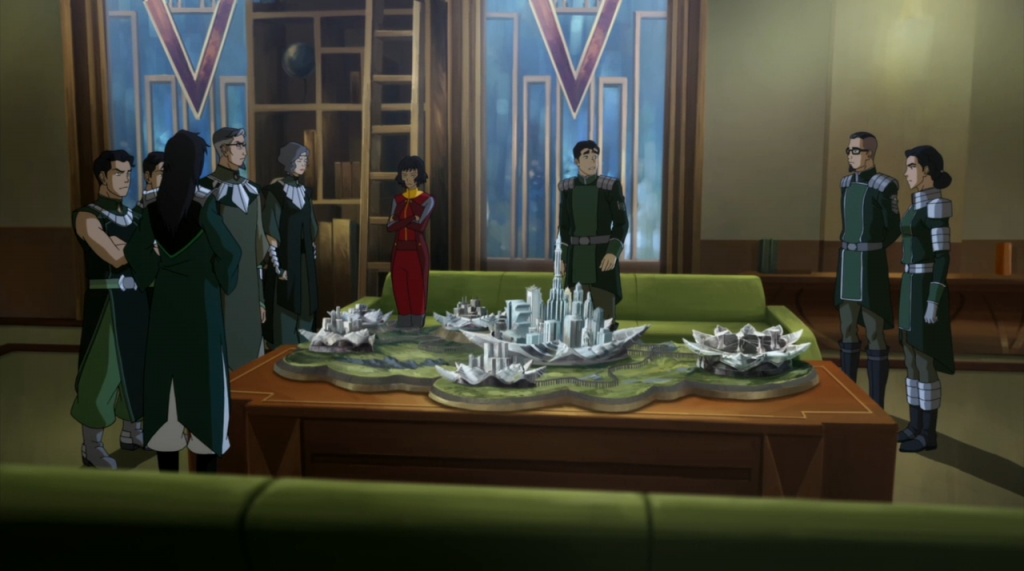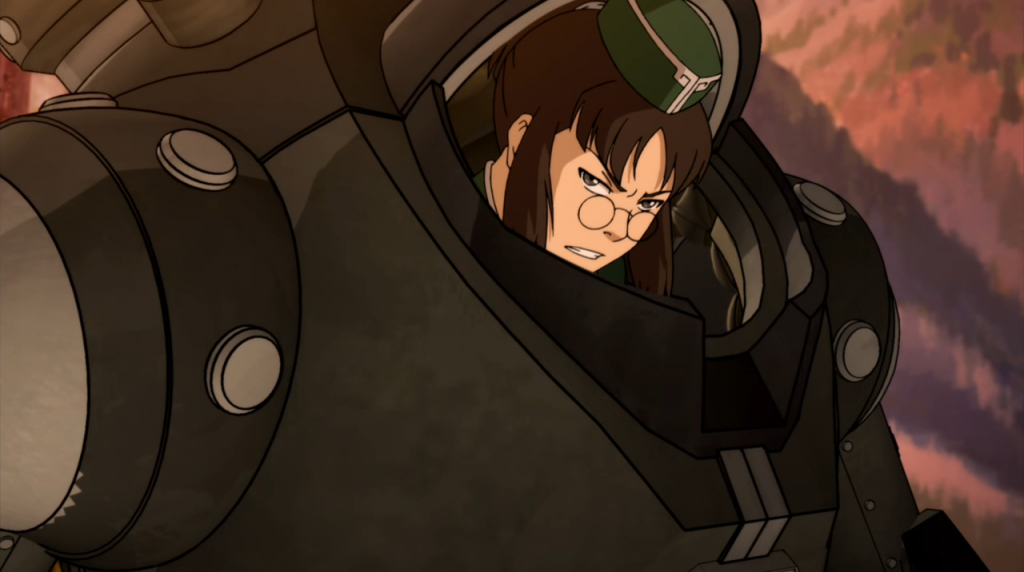Avatar: The Legend of Korra, Season 4: Toph makes for a mean, sarcastic Yoda
I’m glad I haven’t had an opportunity to check in again on this show before now, because just this week its setups have begun to pay off. Korra, for her part, is finally back in the picture in earnest, largely free both physically and mentally of the damage that has weighed upon her since last season and ready to once again to do what she does best. Well, maybe not best, but she’s getting much better. These last few episodes, though comparatively bereft of the action sequences we would expect when the Avatar is involved, have nonetheless been very valuable. Not only have they served to deepen and complicate character dynamics (who would’ve guessed Kuvira was practically raised by Suyin?) and advance narrative elements (so glad we were freed of Prince Wu’s inevitably incompetent rule and got to go straight to Kuvira’s despotism), but it’s finally begun to tie some thematic threads together.

Great (if ornery) mentor. Bad storyteller.
Naturally, the character to make these connections nice and explicit would be Toph, now turned into the curmudgeonly, brusque Yoda we could all see she would become, even as a twelve year old. For almost the entirety of its run, Korra had left me a little cold with the treatment of its primary antagonists, not because they weren’t compelling, but because their very legitimate grievances were always seemingly put by the wayside to allow their despotism, treachery, and extremism to come to the fore. After all, the corruption of a movement’s leader doesn’t necessarily invalidate their wider groups’ concerns.
Until now, the defeat of the Equalists, Tarlok and the Red Lotus, seemed to put to rest the issues of inequality, spiritual alienation and authoritarianism that they each respectively addressed, without ever addressing the root causes of their dissent. During Korra’s healing arc, however, this all finally (and very casually) came to a head with Toph’s assertion that Korra’s inability to free herself of the metallic poison running through her body was directly tied to her denial of the past and her refusal to learn from her enemies as interlocutors.
What Legend of Korra does here bears some underlining, because what Toph makes explicit while reproaching Korra is something quite unusual for children’s programming, suggesting as it does, a whole other category of understanding conflict in which antagonists are neither wholly dismissed by protagonists nor reintegrated into society after conversion. Rather, audiences here are being encouraged to critically assess and “judge” these figures by separating not only their motivations from their methods, but also different elements of the ideological frameworks they espouse.
As this short exchange furthermore suggests, the past can’t really be overcome, but must be considered critically — not in relativistic or complacent terms, but as something we have no choice but to build upon. This is the essence of agonistic thinking, and for a franchise so concerned with the allegorization of real interpersonal and political conflicts as Avatar has been, this framing is essential to what seems to be Korra’s thematic project. With the deepening of Kuvira’s own despotism and complexity this season so far, the highlighting of such agonistic notions suggests some really satisfying conflict in the weeks to come, not only in terms of visual and narrative terms (the show’s still as great in these areas as ever) but also with regard to this show’s broadly political project in terms of its depiction of gender dynamics, cultural diversity/hybridity, as well as interpersonal and political conflict.
In my next post I’ll engage more with what’s actually happening on screen, I promise. Suffice it to say what’s happening is still as engaging as ever, and I’m really looking forward to talking more about (mostly women) ass-kicking, Varrick’s mad science in servitude of Kuvira’s war machine (another allegory of wartime scientific innovation), and the characters’ interpersonal intrigue (so glad to see Jhu Li being developed as she has been). See you again in the aftermath Zhaofu’s siege.




